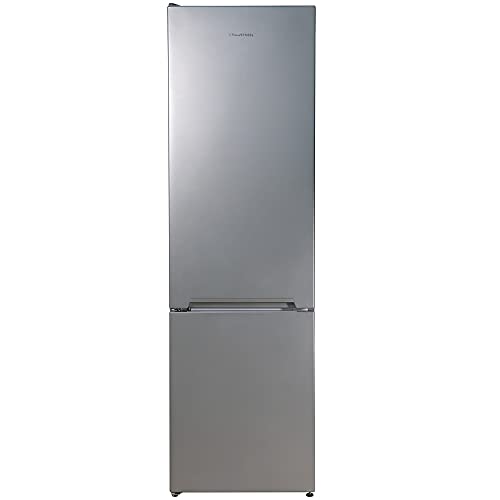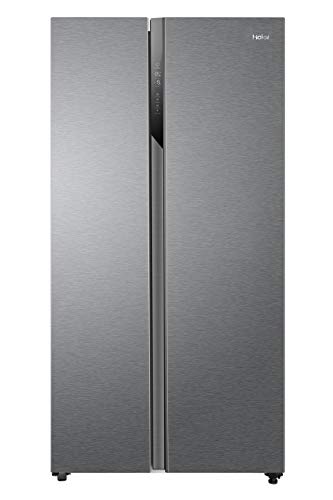The Best Fridges And Freezers Methods To Rewrite Your Life
페이지 정보
작성자 Anastasia 댓글 0건 조회 7회 작성일 25-08-29 05:27본문
Understanding Fridges and Freezers: The Essential Kitchen Appliances
Fridges and freezers are two of the most important home appliances in modern kitchen areas. These appliances serve a vital role in food conservation and waste decrease by making sure that disposable products stay fresh and safe for intake. This post looks into the numerous kinds of fridges and freezers, their functionalities, and crucial considerations for selection and upkeep.
Types of Refrigerators
The market uses a variety of refrigerator types, each created to fulfill different customer requirements. Below is a list of the most typical types of fridges:
Top-Freezer Refrigerators

- Most typical type.
- Freezer compartment is situated above the refrigerator area.
- Normally more inexpensive and energy-efficient.
Bottom-Freezer Refrigerators
- Freezer lies at the bottom.
- Permits much easier access to fresh items at eye level.
- Frequently includes pull-out drawers for better organization.
Side-by-Side Refrigerators
- Refrigerator and freezer areas are surrounding.
- Perfect for narrow kitchens and permits easy access to both compartments.
- Typically features water and ice dispensers.
French Door Refrigerators
- Combines a bottom freezer with double doors at the top.
- Offers sufficient storage and stylish designs.
- Frequently includes functions like temperature-controlled drawers.
Compact Refrigerators
- Smaller size ideal for restricted areas.
- Typically used in dormitory spaces, studio apartments, or as secondary fridges.
Table 1: Comparison of Refrigerator Types
| Type | Benefits | Disadvantages | Common Size |
|---|---|---|---|
| Top-Freezer | Budget friendly, energy-efficient | Less practical access to the freezer | 14-30 cu. ft. |
| Bottom-Freezer | Much easier access to fresh food | Freezer can be harder to arrange | 19-30 cu. ft. |
| Side-by-Side | Easy access, water/ice dispenser | Narrow vs. storage area | 22-30 cu. ft. |
| French Door | Stylish, roomy, organized | More pricey | 20-30+ cu. ft. |
| Compact | Space-saving, portable | Limited storage | 1.7-5.5 cu. ft. |
Types of Freezers
Freezers are an equally crucial device for food conservation. They can be found in various designs designed to fit various household needs. Consider the following types:
Upright Freezers
- Run like a standard refrigerator with vertical storage.
- Much easier to organize with racks and compartments.
Chest Freezers

- Large, horizontal design normally using more storage space.
- Maintains temperatures much better throughout power blackouts.
- More energy-efficient than upright models.
Portable Freezers
- Compact systems perfect for outdoor activities or little spaces.
- Frequently utilized for camping journeys or as temporary storage.
Table 2: Comparison of Freezer Types
| Type | Benefits | Disadvantages | Common Size |
|---|---|---|---|
| Upright Freezer | Easier to organize | Less energy-efficient, more flooring space | 5-20 cu. ft. |
| Chest Freezer | Holds more products, energy-efficient | Harder to organize | 5-25 cu. ft. |
| Portable Freezer | Compact and flexible | Limited storage capability | 1-10 cu. ft. |
Key Features to Consider
When selecting a fridge or freezer, consumers should remember several functions that can improve functionality:
- Energy Efficiency: Look for models with the ENERGY STAR certification to conserve on electricity costs.
- Storage Capacity: Evaluate storage needs based upon family size and eating habits.
- Temperature Control: Some home appliances provide digital controls for exact temperature settings.
- Adjustable Shelving: Customizable shelving permits ideal company.
- Water and Ice Dispenser: Offers benefit but can take up valuable area inside.
- Sound Level: Sound scores can influence convenience, particularly in open-concept homes.
Benefits and drawbacks of Having a Fridge and Freezer
While fridges and freezers are essential innovations, they also have certain advantages and downsides:
| Pros | Cons |
|---|---|
| Protect food lifespan and decrease waste | Require regular upkeep |
| Allow bulk buying and meal prepping | Can be expensive to purchase and run |
| Offer benefit and fast access to food | Occupy significant kitchen area space |
Maintenance Tips
To make sure durability and ideal efficiency of fridges and freezers, think about the following upkeep tips:
- Regular Cleaning: Clean the interior and exterior periodically to avoid accumulation of dirt and bacteria.
- Inspect Seals: Inspect door seals regularly for leakages to preserve efficiency.
- Temperature Settings: Keep the fridge at 34-38 ° F and the freezer at 0 ° F for optimum food preservation.
- Defrost as Needed: Chest freezers should be thawed regularly to preserve efficiency.
- Clear Air Vents: Ensure that airflow isn't blocked to improve energy effectiveness.
FAQs About Fridges and Freezers
Q1: How long can food be kept in a freezer?A: Most foods can be kept in a freezer for numerous months. Meats and poultry frequently last 4-12 months, while veggies can last as much as 8-12 months.
Q2: How typically must I clean my fridge and freezer?A: It is a good idea to clean your fridge and freezer every 3 to 6 months, or as required when spills occur. Q3: Can I put hot food straight in the fridge?A: It is recommended to cool hot food to space temperature level before placing it in the fridge to avoid
raising the temperature level inside the device. Q4: Why is my fridge running constantly?A: This could be due to a malfunctioning thermostat, clogged coils, or door seals that aren't working properly. Fridges and freezers are important
possessions to contemporary homes, offering necessary services for food storage and preservation.
Comprehending the numerous types, features, and upkeep requirements can help consumers pick the right home appliances for their needs and optimize their performance. Embracing energy-efficient models not only supports sustainable practices however also contributes to substantial cost savings on energy costs, making notified choices more essential than ever.
댓글목록
등록된 댓글이 없습니다.



